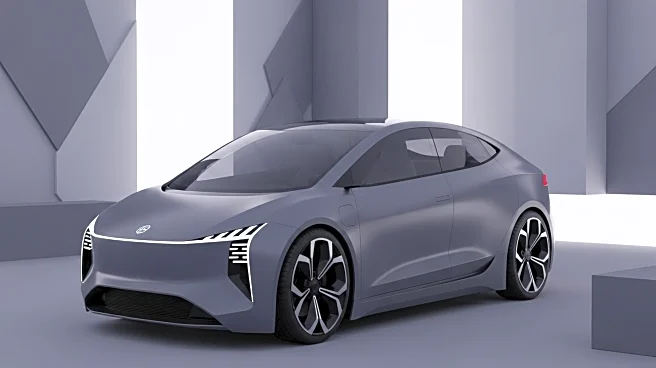What's Happening?
Dacia has introduced the Hipster Concept, a new electric vehicle designed to offer affordable and essential mobility. The concept car is a response to the growing trend of increasingly expensive and sophisticated electric vehicles. The Hipster Concept is compact, measuring just 3 meters in length, and is designed to be lightweight, reducing its carbon footprint by 50% compared to current electric vehicles. The vehicle is equipped with four seats and a flexible boot space, making it practical for everyday use. Dacia's approach focuses on essential features, aiming to make electric mobility accessible to a broader audience.
Why It's Important?
The introduction of the Dacia Hipster Concept is significant as it addresses the rising costs of electric vehicles, which have become a barrier for many potential buyers. By focusing on affordability and essential features, Dacia aims to democratize electric mobility, making it accessible to a wider range of consumers. This move could potentially disrupt the electric vehicle market by challenging other manufacturers to offer more cost-effective solutions. The Hipster Concept's emphasis on reducing the carbon footprint aligns with global efforts to combat climate change, making it a relevant development in the push for sustainable transportation.
What's Next?
Dacia's Hipster Concept is expected to influence the electric vehicle market by setting a precedent for affordable and essential electric cars. As the concept gains attention, other manufacturers may be prompted to explore similar strategies to cater to budget-conscious consumers. The success of the Hipster Concept could lead to further innovations in lightweight and eco-friendly vehicle design. Additionally, Dacia's approach may encourage regulatory bodies to support initiatives that promote accessible electric mobility, potentially leading to policy changes that favor affordable electric vehicle production.
Beyond the Headlines
The Dacia Hipster Concept highlights a shift towards minimalism in vehicle design, focusing on functionality over luxury. This approach could lead to a cultural change in consumer expectations, where practicality and sustainability become more valued than high-end features. The concept also raises ethical considerations regarding the environmental impact of vehicle production, emphasizing the importance of reducing resource consumption. As the automotive industry evolves, the Hipster Concept may inspire a new generation of vehicles that prioritize environmental responsibility and accessibility.









